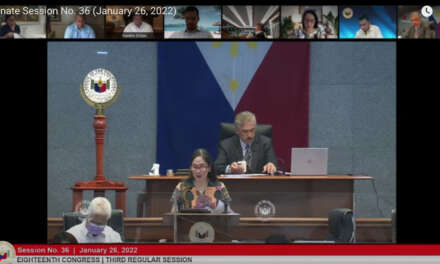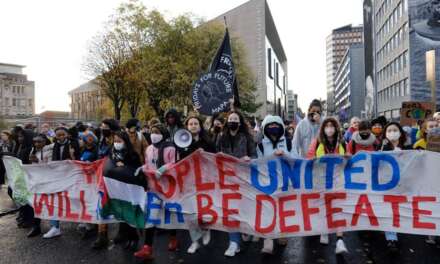We have seen climate change related phenomena with intensity never seen before, like Hurricane Sandy, in many parts of the world in the past year. We no longer have the luxury of time as incidents of increasingly severe storms, floods, droughts, disruption of water cycles and other similar events are becoming the “new normal” for many countries. It is also becoming apparent that climate change is also forcing human migration creating climate refugees. An estimated 200 million people could be displaced by climate change in 2050. In 2010 alone, it was estimated that more than 30 million people were forcibly displaced by environmental and weather-related disasters across Asia and the number of climate refugees are rising. Climate change has also been wreaking havoc on crops and farmlands, worsening the already growing food crisis and pushing even more people into hunger.
And yet, despite the increasing devastation wreaked by climate change on farmlands, livelihoods, and homes, the UN Framework Convention on Climate Change (UNFCCC) negotiations are moving backwards instead of moving closer to a global agreement that will stabilize and cut greenhouse gas emissions. The premise of the climate negotiations has always been based on the principle that developed countries need to live up to their historical responsibility and yet from Cancun to Durban to Qatar, negotiations have instead focused on how developed countries can escape their previous commitments. Now, with the current proposals on the table, not only are developed countries going to be able escape commitments by watering obligations down to voluntary pledges but they will also be able to create more carbon markets and loopholes in order to not take any action at all. Estimates from a study by the United Nations Environment Programme have calculated that even without all the loopholes, these current pledges will lead to an increase in the temperature of up to 5 degrees centigrade.
It is not too late nor is it impossible to arrest this march towards climate chaos. We know what needs to be done:
First, science has been clear that a huge source of greenhouse gas emissions is the carbon dioxide (CO2) produced from oil, gas and coal use. According to the International Energy Agency, two-thirds of the known reserves of the world’s coal, oil and gas should remain underground to have a 50% chance of staying below the 2 degrees centigrade limit. Therefore, if we want a 75% chance, we have to leave 80% of these oil, gas and coal reserves under the soil.
Second, the United States, as the main historical emitter, has to urgently drastically reduce its emissions more than everyone else. All developed countries called Annex 1 parties in the UN climate negotiations should urgently make drastically deep cuts, until 2020, at least 40 to 50% of their emissions based on 1990 levels. These commitments should be translated into concrete targets in coal, oil and gas usage per year, without using loopholes, offsets or carbon markets.
Third, the right to development should be not be interpreted as the right to continue polluting and follow the dirty development path of the industrialized countries. The right to development should be understood as the obligation of states to guarantee the basic rights and needs of the population and their right to live a life in harmony with nature.
In this light, China, Brazil, South Africa, India and other emerging economies should also have targets for emission reductions as they are fast becoming the big emitters of greenhouse gases. These binding targets should be lower than the targets of Annex 1 countries, following the principles of historical and common but differentiated responsibility.
Fourth, ending subsidies to oil, coal and gas companies and limiting their use are a very important step forward but not enough. We also need to block the advancement of all kinds of false solutions that can equally wreck nature and negatively impact the livelihoods of people that depend on a healthy environment like: agrofuels, GMOs, synthetic biology, geo-engineering, nuclear power, resource grabs by big corporations and the green economy.
If we want to have a future on this planet, we need real solutions. We need to move beyond the all-dominating, profit-driven and unsustainable capitalist system that exploits people and ruins ecosystems. If we are to have genuine progress in the fight against climate change, social movements from around the world will have to reclaim the power and momentum in this struggle. Grassroots mobilizations against mining, coal plants, fracking, tar sands, big dams, land grabbing, water privatization, agrofuels, GMOs, REDD are already showing the way. We need to strengthen these struggles and to connect the urgent demands of the people for food, water, health, energy, employment, rights and access with the struggles against climate change, financial speculation, land grabbing, neoliberal free trade and investment agreements, impunity of transnational corporations, criminalization of migrants and refugees, patriarchy and violence against women, austerity measures and social security cuts.
We also need a collective and gradual transformation from the fossil fuel-addicted system of consumption and production towards a low carbon society. This also requires a transformation of the unsustainable capitalist system. Social movements already have many of these transformative proposals and solutions in their hands. Alternatives like food sovereignty, agro-ecology and several others are already being practiced and further developed. If we are to harmoniously co-exist with Nature, we need to abandon the anthropocentric vision of capitalism and recognize that we are only one component of nature and that in order to live a healthy life we need to respect the vital cycles, the integrity, the interdependence of nature by recognizing and upholding the rights of Mother Earth.
Humanity and Nature are standing at a precipice. But it is not too late. We know what needs to be done, and if we do it together, we can change the system.
November 28, 2012, Manila, Philippines
SIGNED:
INTERNATIONAL/REGIONAL
Building and Wood Workers' International – Asia Pacific (BWI Asia Pacific)
Coalition Against Trafficking in Women – Asia Pacific (CATW AP)
EU-ASEAN FTA Network
Focus on the Global South
Global Network Asia
International Domestic Workers' Network (IDWN)
La Via Campesina
Migrant Forum in Asia
RESPECT Network –Europe
Transnational Institute
NATIONAL
Alliance of Progressive Labor (APL-SENTRO)
All Nepal's Peasants' Federation
Ang Nars-PSLINK
Aniban ng mga Manggagawa sa Agrikultura (AMA)
Alyansa ng Kabataang Mindanao para sa Kapayapaan (AKMK)
Associated Labor Unions (ALU-TUCP)
ATTAC Japan
Bangladesh Krishok Federation
Bangladesh Kishani Sabha
Basic Education Sector Teachers Federation (BESTFED)-PSLINK
Bhartiya Kisan Union, BKU, India
Commission for Filipino Migrant Workers
Confederation of Labor and Allied Social Services (CLASS-TUCP)
Development through Active Networking Foundation (DAWN)
Federation of Free Workers (FFW)
Forum Komunikasi Buruh Perkebunan Sumatera Utara
FSPMI (Federation of Indonesia Metal Workers Union)
Greenresearch Environmental Research Group
Iligan Survivors Movement (ISM)
Indonesia Fisherfolk Union / Serikat Nelayan Indonesia (SNI)
Indonesian Political Economy Association (AEPI)
Kapisanan ng Maralitang Obrero (KAMAO-SENTRO)
Karnataka Rajya Raitha Sangha, India
KILOS KA, Mindanao
Koalisi Anti Utang (Anti-Debt Coalition) Indonesia
KRuHA-Indonesia (People's coalition for the right to water)
KSPI (Confederation of Indonesia Trade Union)
Lanao Alliance of Human Rights Advocates
Labor Education and Research Network (LEARN)
Liga ng Makabagong Kabataan (LMK)
Mindanao Peoples' Peace Movement (MPPM)
MONLAR, Sri Lanka
National Confederation of Transportworkers' Union (NCTU-SENTRO)
National Union of Workers' in Hotel Restaurant and Allied Industries (NUWHRAIN-SENTRO)
Network for Transformative Social Protection in Asia
NOUMINREN, Japan
Partido ng Manggagawa
Philippine Airline Employees' Association (PALEA)
Philippine Independent Public Sector Employees Association (PIPSEA-SENTRO)
Philippine Metalworkers' Alliance (PMA-Sentro)
Philippine Rural Reconstruction Movement
Public Services Labor Independent Confederation (PSLINK)
Ranaw Disaster Response and Rehabilitation Assistance Center (RDRRAC)
Serikat Petani Indonesia
Sintesa Foundation
South Indian Coordination Committee of Farmers Movements (SICCFM)
Suluh Muda Indonesia (SMI Sumut)
Sumpay Mindanao
Sustainable Alternatives for the Advancement of Mindanao (SALAM)
TRUSTED Migrants – The Netherlands
Workers' Solidarity Network (WSN-SENTRO)
World March of Women Pilipinas
WomanHealth Philippines
Youth and Students Advancing Gender Equality (YSAGE)








